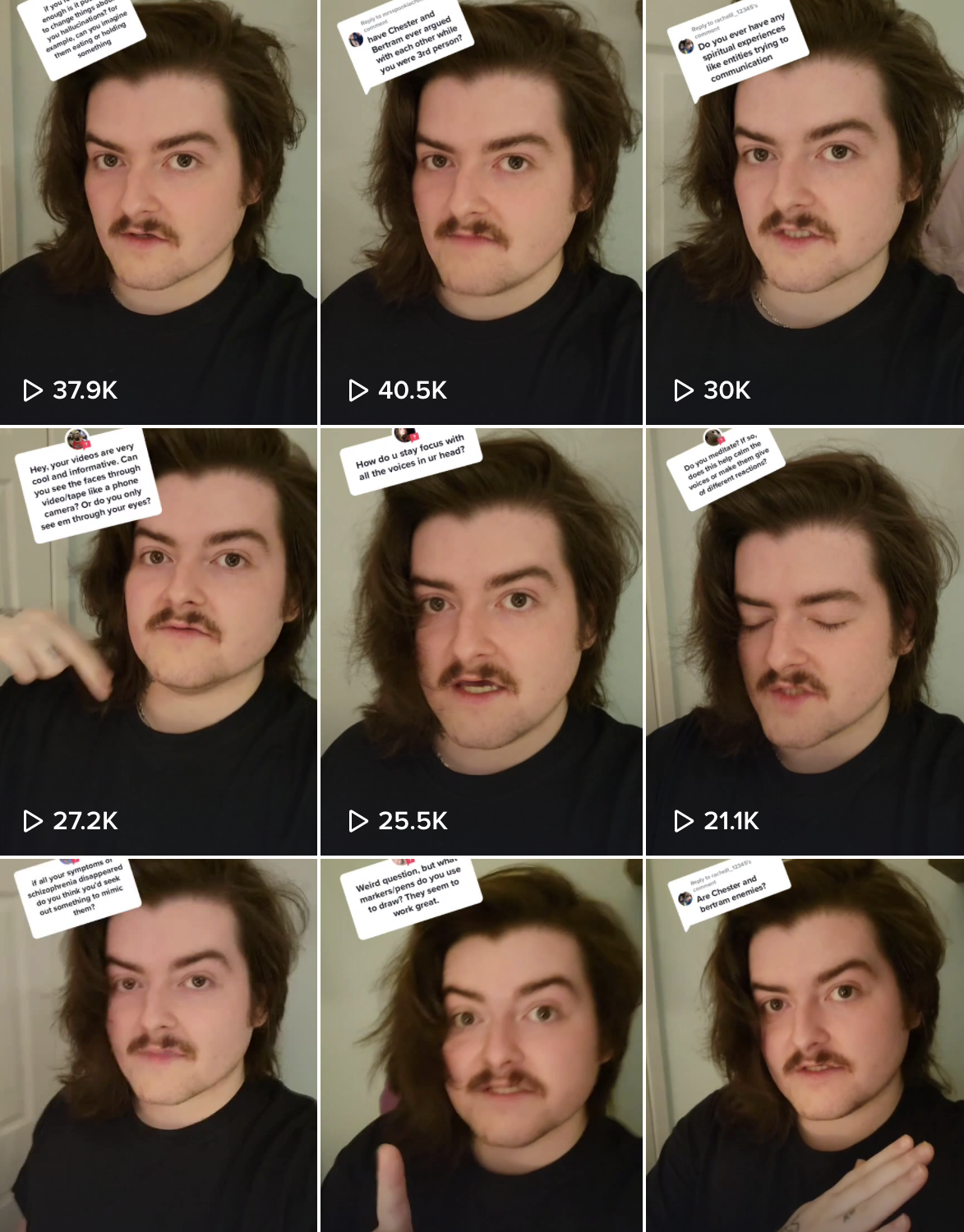"Hey, hey, up here," a voice whispers in the room before a ghoulish face suddenly sprouts from the loft above. Other sounds, like the gargling, incoherent noise of many people speaking at once, can be heard as the camera pans the room, searching for where the face has disappeared to. We don't have to search for long, though, as the face instructs us to "look out the window" before manifesting once more.
For those who don't know, schizophrenia is a brain disorder defined by episodes in which a person is unable to differentiate between the real and unreal. Symptoms range from person to person, but often fall within three categories: positive symptoms, negative symptoms, and disorganized symptoms.
According to Psychiatry.org, positive symptoms are "abnormally present" and can include visual and auditory hallucinations of things that do not exist, as well as paranoia and distorted perceptions.
Negative symptoms are "abnormally absent," meaning behaviors that are missing, such as a loss or decrease in a person's ability to emote, plan, or even speak.
And finally, disorganized symptoms are titular and manifest through disorganized speech or thinking and sometimes even abnormal movements.
For Christopher, he began experiencing symptoms around age 16. "Schizophrenia was the last thing I expected to deal with," he told BuzzFeed. "Over the next few years, I began experiencing whispers that others couldn't hear, and I experienced an avid sensation of being watched by 'phantom eyes.' It didn't matter where I went, I just felt eyes all over me. Similar to social anxiety but 24/7 and increasingly heightened."
Now, after years of cognitive therapy and medication that helps stabilize his mood, the 25-year-old has built a community of 1.3 million followers on TikTok who can step into his shoes through the artist's simulations and even ask him questions, which Christopher is very honest in answering.

"Schizophrenia is a spectrum phenomenon," Christopher explained. "It manifests in whatever way reflects your inner space of consciousness. Your upbringing, culture, traumas, and genetics all bleed into what kind of experience you will have."
"Much like the branches of a tree, there are similarities shared and measured by doctors like poverty of speech, hallucinations, and perceived delusions, but also much like a tree, it grows in a unique way," he continued. "Schizophrenia is a lot like nature itself. It cannot be fully explained, dissected, or figured out because there are so many sensory factors mixed with perception and individual symbols and associations. For every question answered about schizophrenia, there are more questions that arise."
This differentiation in experience comes up often among commenters who point out that his simulations don't apply to everyone. Christopher agrees, and said, "My simulators are accurate as best as I can do with what I have to express. However, what viewers feel while watching it reflects how individuals would feel experiencing similar phenomenon."
Viewers appreciate seeing the perspective online, where first-person accounts of schizophrenia are lacking. Not only have Christopher's videos helped people understand what their loved ones with schizophrenia are experiencing...

...but medical professionals have also commented and shared that his work is helping provide a more in-depth understanding of their patients, as well:

And this was Christopher's goal all along. Through his work, the animator hopes to dispel misconceptions about schizophrenia and destigmatize the disorder. "It never comes easy, but sometimes to push people to become compassionate, you have to expose the public to the truth, which may even make them feel discomfort or fear," Christopher said.
And for others like him, the animator said, "I hope my work helps neurodivergent people climb out of the hole of self-doubt and shame. I am sick of people putting themselves down based off a diagnosis and having the misguided belief that they are worthless. We are all here for a reason. Do what you want, express what you are, just do not hurt people."
For any content or question related to schizophrenia, you can contact the National Alliance on Mental Illness by visiting their website, calling their helpline: 1-800-950-NAMI (6264), or emailing info@nami.org.
Note: NAMI Helpline is not for crisis situations. They can answer questions about finding treatment, symptoms of mental health conditions, treatment options, local support groups, education programs, helping family members get treatment, programs to find jobs, and legal issues related to mental health.
